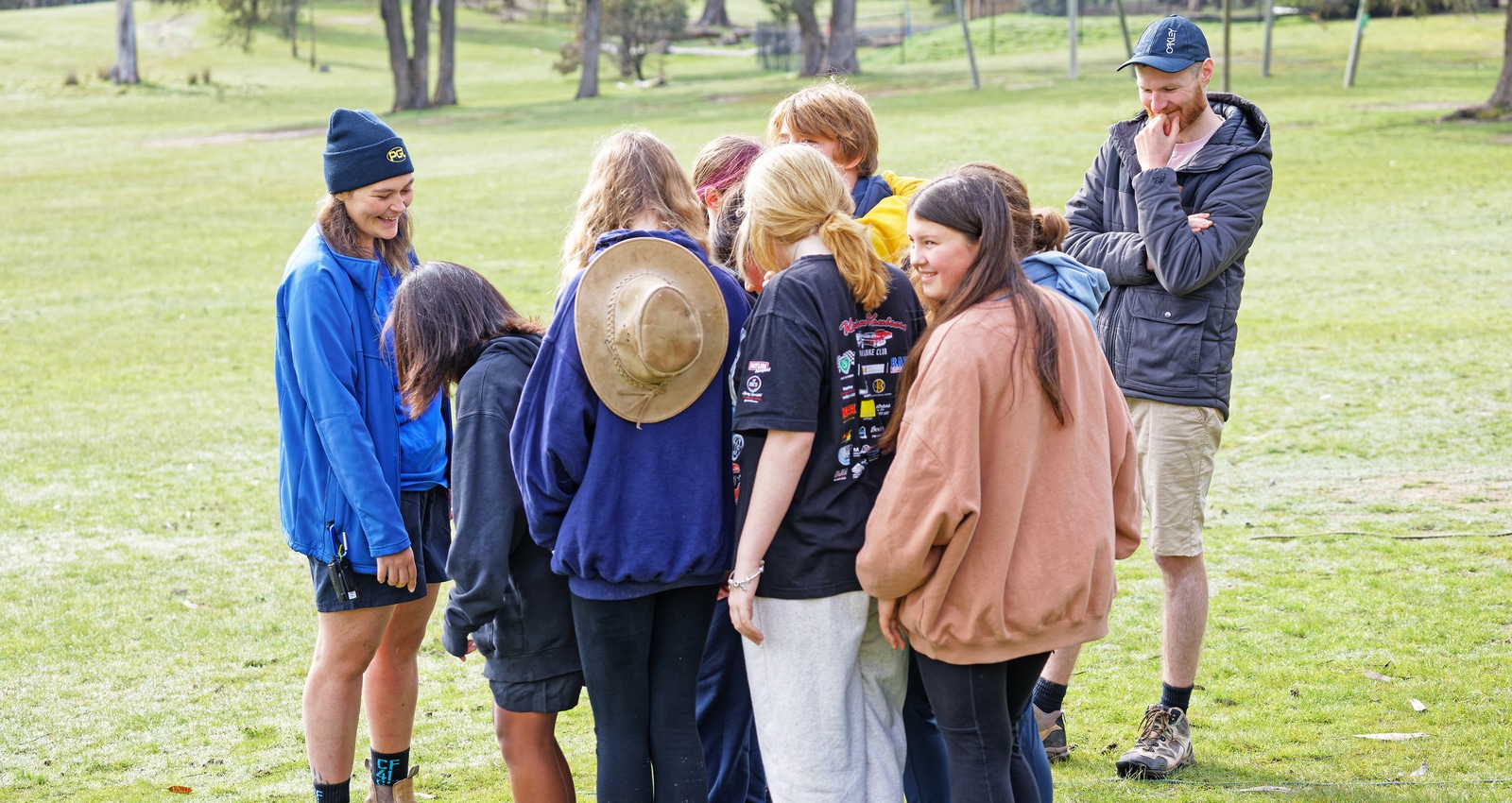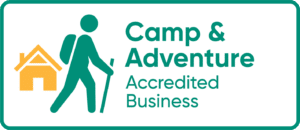At PGL, we know all about how to engage students! With our fantastic school residential camps for primary and secondary, your students will have a blast learning a range of skills while taking part in adventurous activities with their friends. Outdoor environments provide the perfect setting to get students excited about learning in a new and engaging way.
Why is engaging your students in learning activities is important?
If students aren’t interested in the topic or tasks, they’re not fully focused, making it harder for them to retain information. This is why engaging your students in learning is so important. When students are engaged, they are more motivated, which leads to deeper understanding and better academic results.
There are a few studies that have consistently shown that actively engaged students achieve more than their disengaged peers. Here is some of the data:
- Better retention and persistence: Many students drop out because they don’t feel connected to their learning. Engaged students feel like they belong and are more likely to push through challenges to reach their goals. This helps them stay on a good path throughout their academic careers.
- Development of critical skills: It’s not just about grades; being active in learning helps students get better at things like thinking critically, solving problems, talking with others, and working in a team. These skills are hugely beneficial for success in their academics and in their future careers.
- Feeling vs learning: A well-known Harvard study found something very interesting. Students felt like they learned more from traditional lectures, but they actually did better on tests when they participated in hands-on activities. This shows how important it is to have activities that challenge and get students involved, which is what a great school camp is all about! The study is detailed in this Harvard Gazette article.
Through various strategies such as active learning or group work tasks, you can encourage your students to be more involved with current topics, helping them improve their quality of learning both inside and outside the classroom.
Strategies for engaging students in learning activities
Here are some ways that you can encourage your students to be more engaged. Try to incorporate a few of these ideas and keep things interesting for your students.
Active Learning
Sometimes, just sitting and listening can make students lose interest in the topic, especially with the younger ones in primary or secondary school. So why not try an approach that promotes active learning? This could include many ways of encouraging students to take part and have a say, whether it’s a discussion, a quick poll, or an interactive task.
Instead of just teaching by talking to your students, get them up and moving! Active learning is all about hands-on activities that keep students engaged.
- Sharing ideas: Ask a question, give students a minute to think about it on their own, then have them discuss their ideas with a partner. Invite pairs to share their thoughts with the class.
- Role playing: Have students act out a historical event, a science concept, or a scene from a book. For instance, in science, they could pretend to be parts of the water cycle. In history, they could debate as two historical figures.
- Classroom games: Turn lessons into a game! Use a fun quiz, a scavenger hunt, or a challenge with a competitive element. For example, a math scavenger hunt could have students solve problems to find the next clue.
Relate learning to the real world
It’s a fairly common question we’re sure you’ve heard before: “When will we use this after school?” Well, by making sure you can relate learning to the real world, you’ll be able to answer this question and help students realise the importance of the topic.
Show students why what they’re learning matters outside of school. This helps them see the value and purpose of your lessons.
- Case studies: Present a real-world problem for students to solve. For secondary school students, you could have them design an interior living space or develop a marketing plan for a local business.
- Guest speakers: Invite a professional from a field you’re studying to talk to the students. For a lesson on engineering, a civil engineer could discuss the design of bridges. For a lesson on biology, a park ranger could talk about local ecosystems.
- Project-based learning: Give students a project that requires them to apply their knowledge. If you’re studying geometry, have them design and build a small model house, calculating the area and volume of each room.
Focus on students’ interests
Find ways to incorporate your students’ interests into questions, tasks, and activities. You could pose questions in the context of their favourite movies, games, or hobbies, so they are more engaged. This way, they’re more interested in the tasks you’re setting them because it’s relatable.
- Personalised tasks: If your students are into a specific sport, use that interest to create a lesson. A math class could use player stats to practice averages and percentages. A creative writing class could write a story from the perspective of their favourite athlete.
- Themed lessons: Build an entire lesson or subjects around a popular movie, video game, or hobby. For example, you could explore the physics behind a video game or the history and culture behind a movie.
- Show and tell: Encourage students to bring something related to a topic and share why it’s interesting to them. It helps them build a personal connection and gives you insights into their passions.
Group work tasks
Group work is one of the most engaging activities for students. Whether working in pairs or small groups, it’s an excellent opportunity to let students work with peers to complete tasks. It can help build students’ confidence and improve communication and collaboration skills. Here are some ideas for group work tasks that you could use:
- Jigsaw activity: Break a complex topic into smaller parts. Assign each student in a small group one part to become an “expert” on. Then, have them teach their part to the rest of their group to complete the puzzle.
- Group presentations: After working on a project or solving a problem, have small groups present their findings to the class. This helps them practice public speaking and teamwork.
- Collaborative creation: Have groups work together to create something, like a digital poster, a short skit, or a model.
Use a variety of resources
There are so many resources out there. Video, audio, interactive apps, and more! These are fantastic ways to vary students’ learning so they’re constantly engaged by the different teaching and learning methods.
Consider using a short documentary to introduce a topic, or a podcast to recap a lesson. A well-rounded approach will make sure that all students, regardless of their learning style, have an opportunity to be engaged.
Learning activities at PGL to boost student engagement
At our school camps in Victoria and Queensland, keeping students engaged is at the heart of everything we do. Here are a few examples of our activities:
Initiative Exercises
Students tackle these mental challenges individually, or as part of a team. It’s a fantastic way to build on students’ problem-solving skills as they think of the best way to solve the physical puzzles. These exercises require students to think critically and communicate effectively, reinforcing lessons on strategy and teamwork.
Orienteering
This is a fun adventure for your students! In teams, they must find the fastest way to the control points, using their map reading and decision making skills.
Raft building
Do your students have a creative mind? Well this is the activity for them! They must work together to create a raft using only the materials provided. It’s a great opportunity for students to get their creative juices flowing as they collaborate on this tricky task.
Get your students engaged on a PGL school camp!
We offer plenty of engaging learning activities and adventures when you book a residential school trip with PGL. Our camps are so much fun for students and make for an unforgettable time!
At PGL, we have school camps in Victoria (PGL Campaspe Downs & PGL Rumbug) and Queensland (PGL Kindilan), which make an excellent fit for your students to enjoy thrilling activities! So, contact us today to arrange your next residential school trip.

A qualified teacher and former university lecturer, Steve has been our Guest Experience Manager at Campaspe Downs for many years. Steve’s work at Victoria University, setting up the “Iramoo Sustainability Centre”, focused on restoring and protecting the native grasslands of western Victoria, as well as advising schools how to set up indigenous gardens. He has lectured on science, indigenous education and outdoor education.









